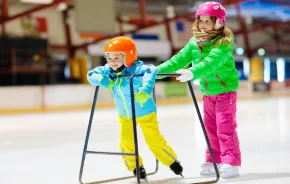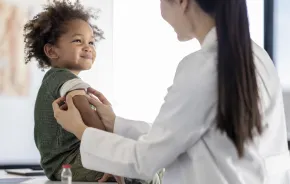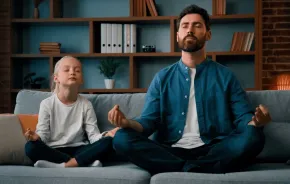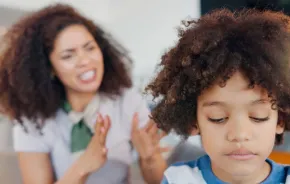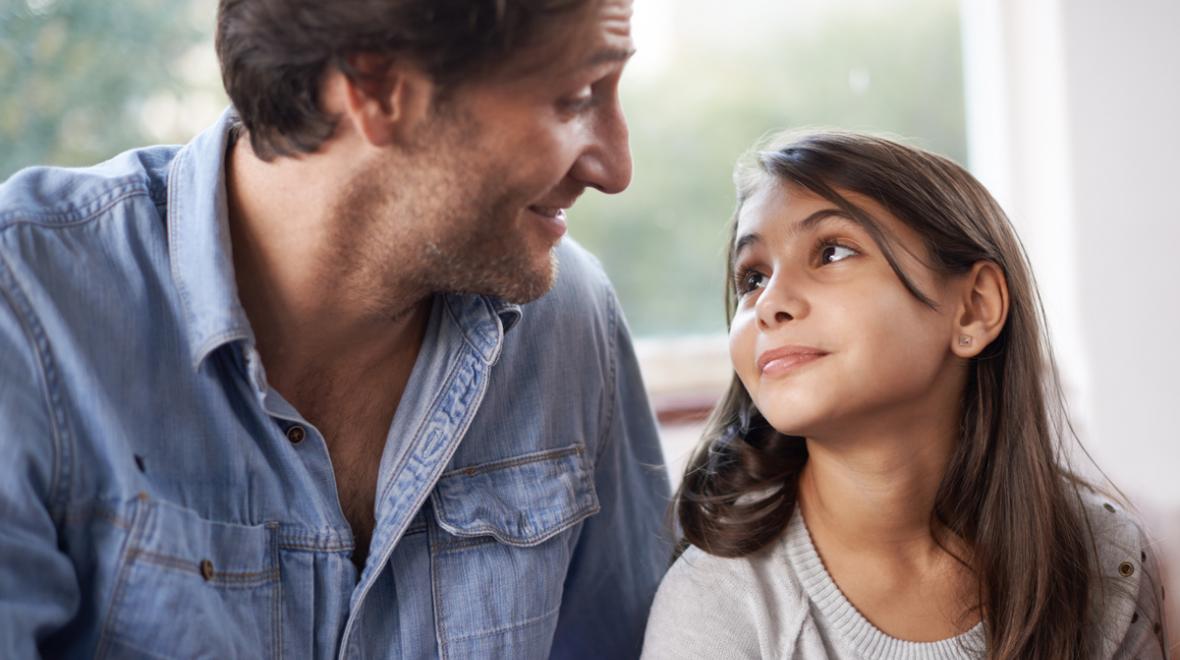
“I can’t trust my teenagers to maintain social distancing, but I can’t keep them home anymore. They are threatening my life — literally! I have a health condition that places me at risk.”
“I’m either grumpy or yelling at my kids all day long, despite my efforts to stop nagging. I even resent people who tell me to practice self-care. It feels like another burden.”
“I know I’m supposed to feel grateful for my health and relative safety, but all I can think about is wanting this whole pandemic over right now!”
Burnout is a state of emotional, physical and mental exhaustion caused by excessive and prolonged stress. When the demands of a situation exceed one’s ability to meet its challenges, you can feel overwhelmed, emotionally drained, and potentially hopeless and helpless.
After three months of scrambling to work from home, manage homeschooling and stay safe, families are experiencing burnout. My research and counseling of families with chronically ill children taught me that parental burnout is a real concern. “Practice self-care” can feel like empty advice when you don’t have the energy to do anything but succumb to scrolling on your phone.
In the world of psychology and in medicine, we find it is helpful to first diagnose, then treat, problems. Burnout is a natural result of an extreme output of energy over an extended period of time. The adrenaline rush that spurred us into action benefited us initially in March. We all hustled to shelter in place. This high activation stage helped families get groceries, operationalize safety measures, organize family routines and practice physical distancing while socially connecting through video platforms.
With burnout being a real issue and no definitive end to the pandemic in sight, we now need to shift to another set of skills, one that supports endurance for the long haul of challenges that we will face over the next year or so until a vaccine is available to everyone.
Hundreds of studies about child and family resilience have been conducted after wars and various natural disasters such as hurricanes, earthquakes and epidemics. The ones who fared the best stayed positive, purposeful and humane. They organized routines, stayed connected to loved ones and social support networks, and focused on things they could control.
Rather than drone on about these studies or list out things you should do to stay healthy and more effective with your kids, I’m going to recount some little victories that parents have shared with me during the COVID-19 pandemic. These stories illustrate strategies that researchers and clinicians have known for years constitute the toolkit parents need for building child and family resilience.
Focus on positives.
“My daughter threw a fit when we were doing yard work. She threw her rake, stomped off cursing and yelling putdowns, and came back after 20 minutes. I disarmed her completely when I praised her for her ability to manage her feelings by taking a break. I told her that she inspired me to get better at that since I can stay ensnared in arguing and making things worse, instead of leaving and doing my breathing for self-calming. She picked up the rake and calmly started working again.”
Appeal to their competence and altruism.
“After days of lectures, power struggles and threats, I approached my son differently. At 17, he is capable of understanding abstract concepts like exponential risk of exposure in social gatherings. I admitted that I had insulted him by my anxious tirades. I apologized. I said I knew he cared about me, other loved ones and the community, and would never want to hurt anyone with impulsive decisions. He hugged me.”
Negotiate win/wins.
“I’m a huge nagger. And I’m always mad at my husband, who is Mr. Happy and never helps out. I promised to not nag if he would monitor the kids’ homeschooling while he did his WFH. He agreed! I promised that I wouldn’t nag him about how he did this process either. It worked. It tells you how much they hated my nagging!”
Empower the kids.
“We have never had a family meeting before, so we really went for theatrics. We gave a pad and pen to the youngest (11), and told him he was the CEO of chores. The 15- and 16-year-olds rolled their eyes. We did the meeting during a Zoom call with grandparents, who served as consultants and allies for our kids. We figured that this would keep some order. After some fireworks, uncontrollable giggles and heavy-duty negotiating, we banged out a daily list of chores for everybody to complete before dinner every day. With some setbacks along the way, our kids are cooperating with chores.”
Balance routine with flexing.
“My 13-year-old son has been horrible at doing virtual school. He hates it, and we’ve been fighting a lot. I’m super-organized, always made straight A’s, and love routines. He’s the opposite. I’ve been frustrated with him throughout middle school. It’s worse now because he just wants to sleep, game and do social media. I’ve decided to completely give up on school. The teachers have been great and I’m out of it. I declared ‘Freaky Friday’ yesterday and filled the day with fun, surprising and unpredictable stuff (especially for me) — I bought a new kite we used on the hill, ate pie for lunch, and invited a friend over for distanced and gloved Frisbee. He said it was one of the best days ever.”
Practice self-care.
“I’m one of those moms who gets teased by friends about being a supermom and adrenaline junkie in my quest to get things done. I know that I sometimes overdo it and get really witchy by the end of the day, but I also see the benefits, especially during the pandemic. I get sick of people telling me to ease up, because it feels like no one appreciates how much I do to keep the family going. I finally gave in. I declared a ‘Me Day.’ I spent half the day walking, appreciating nature and my bodily health, and the other half in my room with books, movies and Zoom calls with friends. I feel like a new person. And the family survived, of course.”
Accept some risk.
“My 13-year-old son is an extrovert and has suffered a ton with the shelter-at-home mandate. He is not cut out for social distancing. My anxiety and sense of obligation to protect him, our family and the community has felt like a burden on him. I realized that I had to suffer a bit more and he needed to suffer less. I arranged a bike ride day for him and a friend. The two dads followed at a distance like ace trackers, promising to ‘oversee’ mask use and physical spacing. My son had to tolerate the supervision, and I had to tolerate my anxiety spike.”
Control yourself, not the kid.
“I have to muzzle myself from talking about my daughter’s rudeness, laziness, eating habits and whining. I know that children need a mostly positive home environment, but I have the judgmental harpy in me that says that she shouldn’t be the way she is. With lockdown, I don’t get a break from watching her constant messy habits! I just try to focus on myself and what I can do to maintain healthy family routines. I repeat inside my head all day, ‘The only person I can control is myself’ and ‘One day at a time.’ Sometimes it’s ‘One hour at a time.’”
Allow boredom.
“I feel a little guilty, because part of me really likes the shelter-in-place thing. I’m loving being the more relaxed parent I’ve always wanted to be. When my kids complain of boredom, I just ask them what they’re going to do about it. They stopped complaining. My 9-year-old told me that he’s discovered that he likes hanging out by himself. He also realized that his Lego creations are so good that he feels pretty confident that he’s going to be an architect on the moon someday.”
Validate grief and loss.
“I’m a problem solver. My wife keeps telling me to let our 16-year-old daughter have her phases of grief and sadness without telling her to look at the bright side — that we have our health and can pay our mortgage! I’m told that rushing to a pep talk is dismissing her feelings. I get it (sort of), but it is really hard, since I feel like I’m indulging her self-pity. But I tried it the other night — just saying over and over how rotten it was that she was missing out on important teenage stuff. I must admit, the look in her eyes told me everything. I’ve never felt closer to her.”
Notice that all of these parents reflected on their part in making things better. They examined their own particular challenge with their child, demonstrated empathy for their child’s experience and figured out ways to nudge relations in a positive direction. They resisted judgments about how their children’s behavior should be different, and instead jump-started changes with their own clever and positive approaches.
Since every family’s challenges are unique, little victories will be, too. Taking time to rest up enough to be analytical and creative is imperative. Yes, it’s true — we psychologists always start with emphasis on parental self-care, because we know that until you get some rejuvenation, you can’t get your body calm enough and your brain online enough to problem-solve. Helping kids be resilient always means starting with parent resilience, so address your burnout by replenishing yourself with a nap, a walk, by connecting with loved ones, or whatever does the trick for you. Through positive relating with our kids, we can build closer bonds for the rest of our lives.








